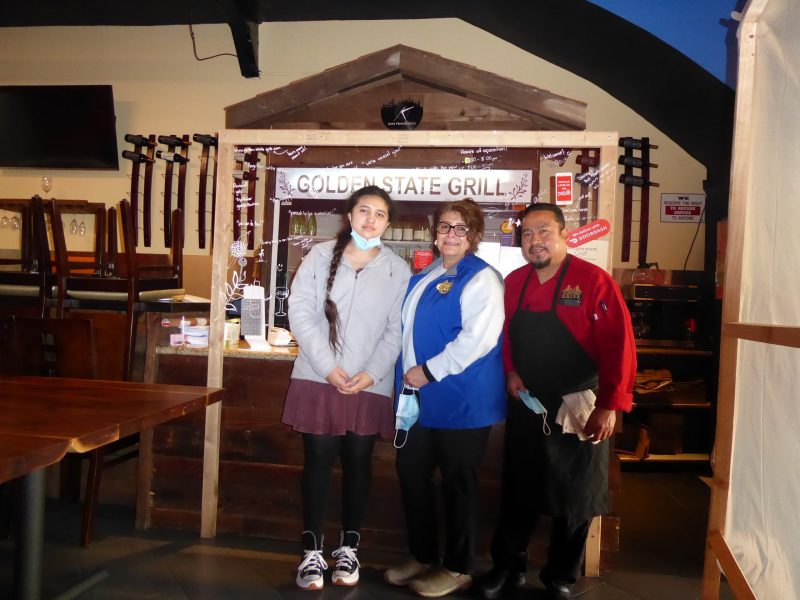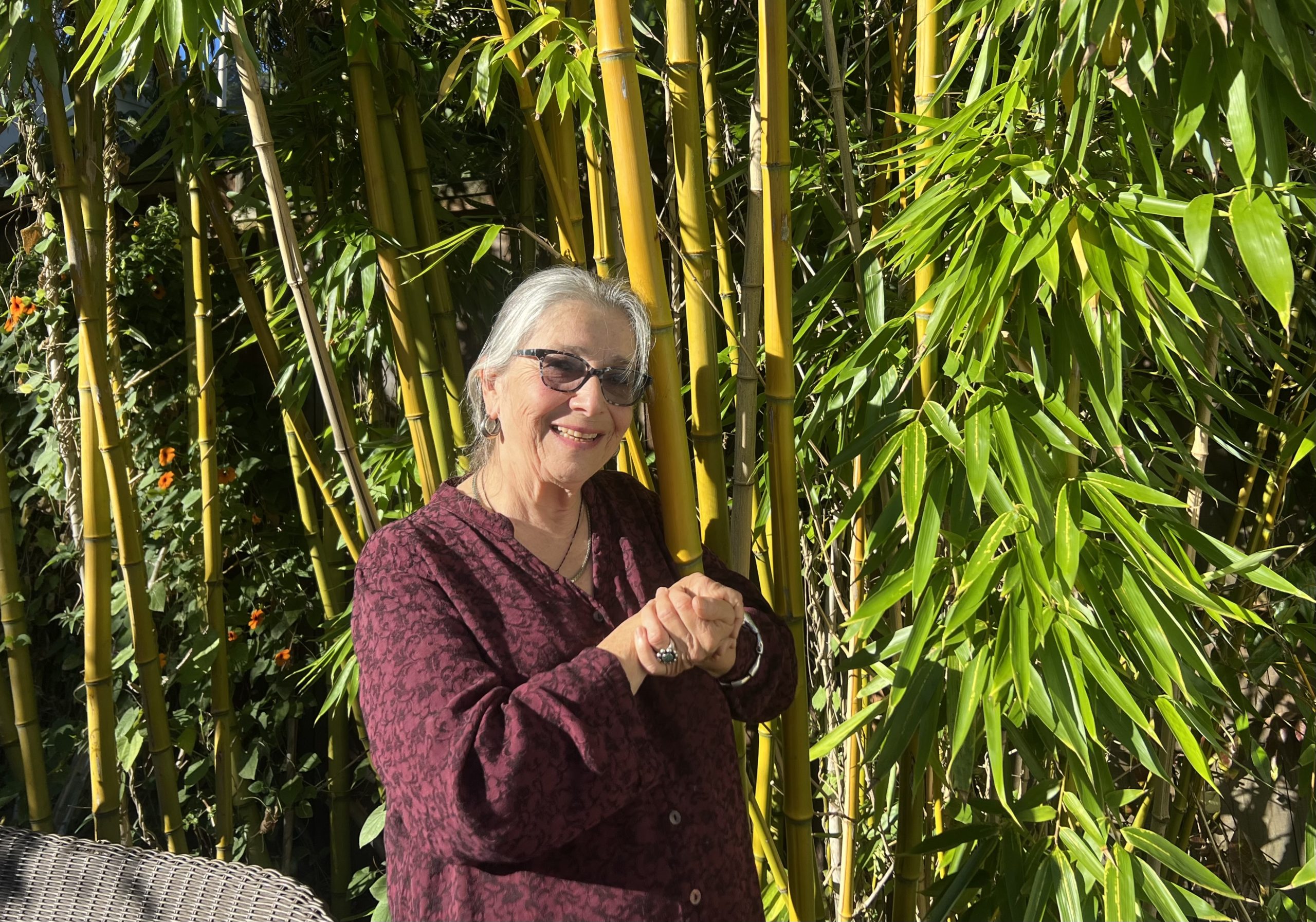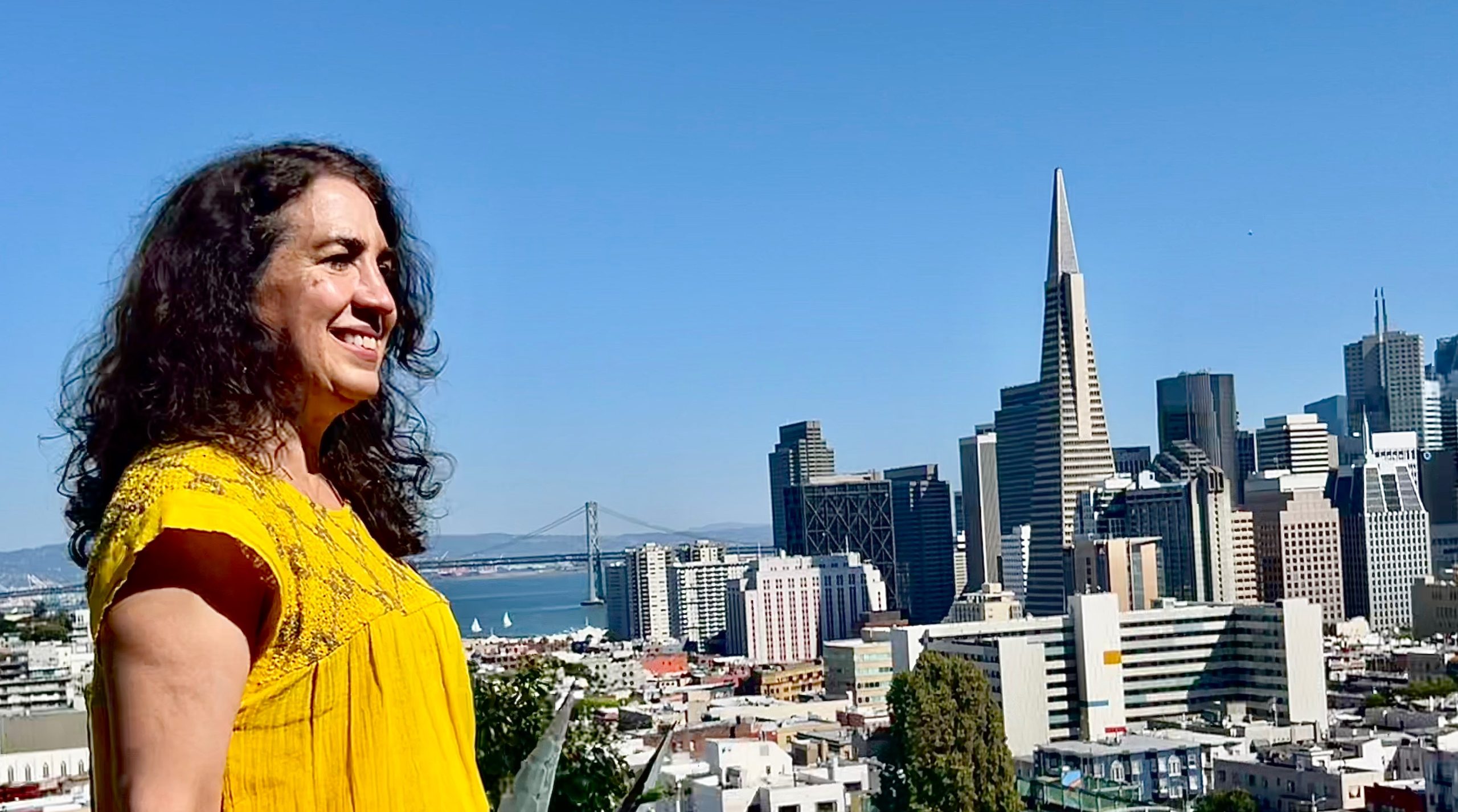‘Great Plates’ helps keep local restaurants open during Covid while feeding seniors who might fall through meal delivery gaps
By Mary Hunt and Judy Goddess
In the summer of 2020, Rosa Elena Rivera was fast approaching the end of her rope. She’d had to close her restaurant, Golden State Grill in the Excelsior, twice in the face of the Shelter in Place order and a Covid scare in her own family.

Over in Stonestown, 86-year-old Arlene Silverman has a chronic disability and lives alone. She was depending on low-cost convenience foods like frozen pizza or pasta brought in by her caregiver.
Luckily, San Francisco signed on to a program made available by Gov. Gavin Newsom that’s helped both of these women. Great Plates Delivered has since last March delivered free meals to 3,600 seniors not able to shop or cook for themselves, according to Shireen McSpadden, executive director of the San Francisco Department of Disability and Aging Services, which handles registration for the program. Andnearly 250 small and medium-sized restaurants received more than $20 million for these services, helping them stay open and rehire many employees.
A temporary program supported mostly with Federal Emergency Management Administration funds, Great Plates pays local restaurants hard hit by the pandemic to prepare and deliver meals. Their clients are seniors who could neither shop for groceries nor prepare their own meals but didn’t qualify for services like for services like Meals on Wheels that are geared to low-income residents. Great Plates accepts seniors who earn up to $77,280 – or $104,520 for a two-person household.
Down to a staff of three
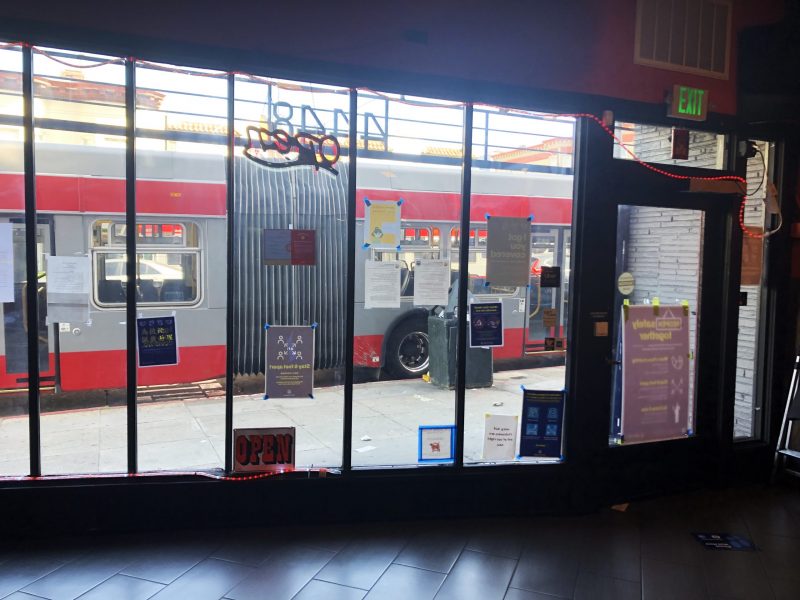
When restaurants and many other businesses were prohibited from allowing customers inside, Rivera was forced to reduce hours and cut staff down to three – herself, the cook and the dishwasher. She couldn’t build an outdoor parklet as many restaurants did; Golden State Grill’s front door opens onto a narrow sidewalk and busy bus stop. She relied on takeout and sales through delivery services like DoorDash and GrubHub. “Some days, we took in only $50 or $100 but still had to pay rent and salaries,” said Rivera.
Then one day their District 11 Supervisor, Ashai Safai, dropped in with a box of masks and two bottles of hand sanitizer. How’s business? he asked.
Safai soon had Rivera connected with SF New Deal, one of two organizations the city has contracted with to administer the Great Plates program. The other is Off the Grid, a coalition of mobile, street food creators and caterers. Both recruit meal providers and distribute payments.

Their field armies of small and mid-size local restaurants and food trucks prepare and deliver three free meals a day, seven days a week to individuals, residential shelters, congregate housing and churches. SF New Deal has funneled direct financial aid to 184 small businesses since last March. (They currently have 111 restaurants signed up.) Off the Grid has provided assistance to 73 local restaurants and food truck operators in San Francisco.
“This program has been a blessing for everybody. Without it, we would have closed,” said Rivera. “We now have six employees and provide 504 meals per week for Great Plates.”
Silverman, who learned about Great Plates from a hospital social worker, readily admits her previous diet was boring and unhealthy.
Protecting seniors and the economy
“What impresses me about Great Plates’ meals is their high nutritional value. Their meals usually include fresh vegetables as well as high-protein foods like beef, fish, chicken, and eggs. The meatloaf is better than the one I used to make,” said Silverman. “What a treat!”
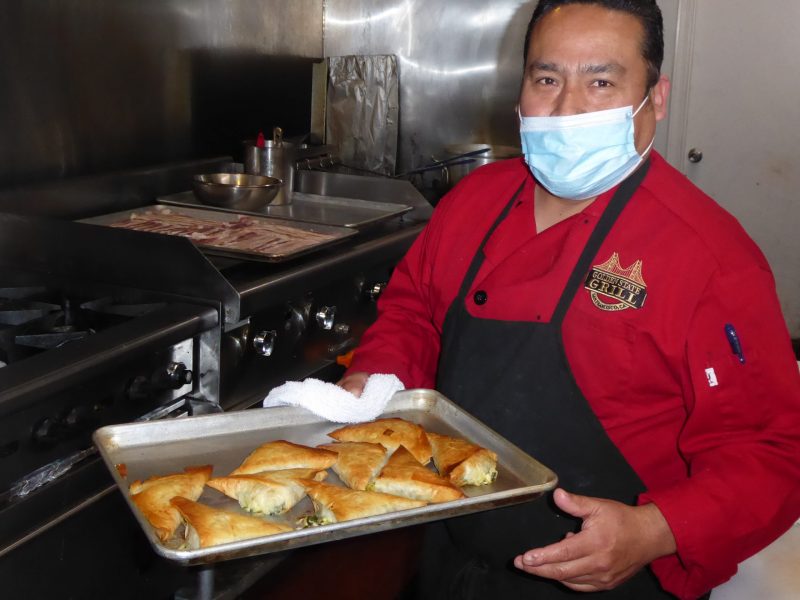
California was the first state in the nation – and San Francisco one of its first counties – to sign on. “Great Plates protects seniors and the economy and supports the hospitality industry ravaged by the pandemic,” Gov. Newsom said in introducing the program on April 24 last year. “Meals on Wheels can only do so much.”
As of Feb. 25, 19 California counties covering 27 jurisdictions were participating in the program. In San Francisco, seniors and restaurants in every district have benefited, said Vinny Eng, SF New Deal community organizer. While “one out of seven small businesses in America permanently closed due to COVID-19, of our 111 restaurant partners, only one has shut their doors forever,” he said.
Restaurants must apply to join the Great Plates program. They can expect a minimum of eight weeks work for approximately $3,000 per week, providing 100-150 meals per day, two or three days a week.
FEMA provides 75 percent of program funding; the state and San Francisco 25 percent. Because FEMA only funds the program on a month-to-month basis, there is concern it could end at any time. For that reason, DAS discourages seniors in traditional meal delivery programs from switching. But Great Plates is committed to a transition period if FEMA pulls funding suddenly, Eng said. And, a number of relief programs being proposed at the federal level are hoped to continue benefits for much of 2021, he said.
So far, Great Plates has helped many restaurants rehire laid-off staff and keep going in hopes of outrunning the pandemic. In a survey taken in August, SF New Deal found that in the first week of last year’s Shelter in Place order, 66 of its 111 restaurants laid off more than half – 721 – of their employees. As of early September, respondents had been able to rehire about 1 in 5 of the jobs lost (approximately 144 positions) and about a quarter were able to rehire most of their laid-off employees.
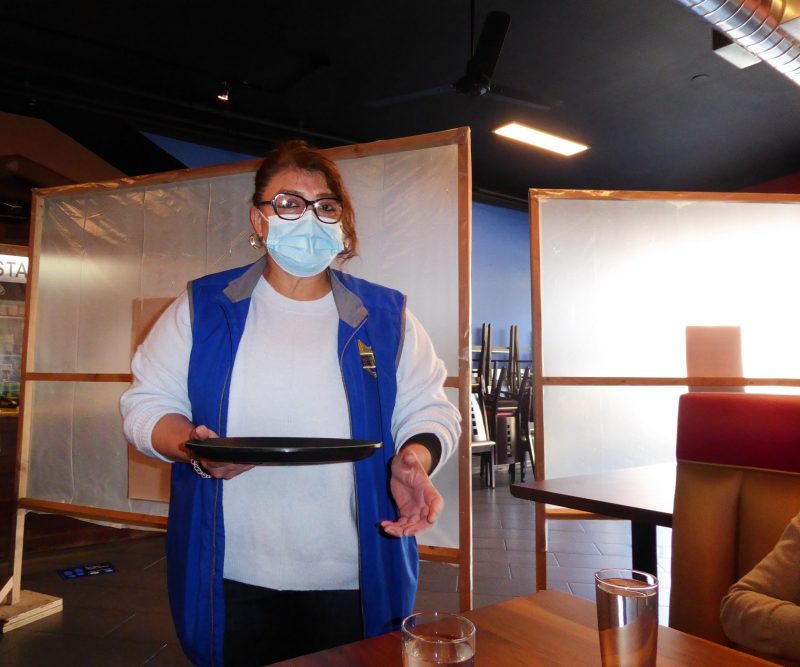
Great Plates has also been a life saver for the students and graduates of La Cocina, an incubator for food entrepreneurs, with a focus on low-income women, immigrants and people of color. After the first month of pandemic closures last year, participants and graduates saw an average 70 percent decline in sales. Of those actually running their own businesses, 90 percent had to lay off or furlough their entire staff, according to Cynthia Solis Yi, the incubator’s earned income director. “For 56 percent of these businesses, their business is their entire family’s sole source of income,” she said.
With Great Plates support, La Cocina businesses have been able to retain current staff and a few, even hired additional staff, Yi said.
Once a senior is enrolled in Great Plates, they are contacted by one of the food vendors to choose their preferred cuisine—Asian, Latin, or American, arrange a convenient delivery schedule and discuss any food allergies or dietary restrictions. While clients cannot pick their own restaurant, they may request a cuisine change or arrange an alternate delivery time.
An upgrade in dinner entrées

Inner Sunset resident Lee Ellen Shoemaker, 84, said she has been enjoying a greater variety of meals than before: Caesar salad, noodles with roasted veggies or enchiladas. Before Great Plates, she described her lunches – sliced deli turkey on wholegrain wheat – as simple and boring and her dinners as only slightly varied – “TV dinners and frozen entrées from Trader Joe’s, flavored with a fourth-of-a-cup of Campbell’s cream soups. An occasional rotisserie chicken from Costco lasted a week.”
A Mon Ami volunteer shopped for her and delivered the food. She also ordered online and used either the supermarket or a third-party delivery service. She knows Great Plates is only a temporary program, but counting on technology, she said, “Maybe by the time the program closes, many places will have little drones to drop things to me.”
Seniors interested in Great Plates Delivered can call the Hub at the San Francisco Department of Disability and Aging Services, (415) 355-6700, Monday through Friday, 8 a.m. to 5 p.m. Restaurants interested in participating can inquire at hi@sfnewdeal.org, although there is currently a wait list, Eng said.
